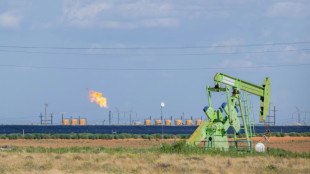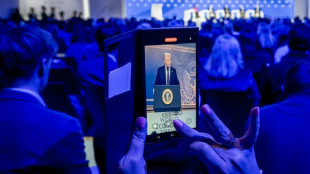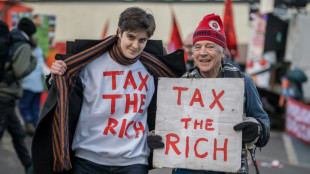

EU foreign policy chief hopeful on Iran nuclear deal in 'days'
The EU's foreign policy chief voiced hope Wednesday at reviving the Iran nuclear deal within days as Israel's leader, a strong opponent, made his case with US President Joe Biden.
The Biden administration is eager to restore the deal trashed by former president Donald Trump and says that Iran has backed down on some demands that held up diplomacy for a year and a half.
"I am hoping that in the coming days we are not going to lose this momentum and we can close the deal," top EU diplomat Josep Borrell said after an informal meeting of the bloc's foreign ministers in Prague.
"It's clear that there is a common ground, that we have an agreement that takes into account, I think, everyone's concerns," he said.
In Washington, National Security Council spokesman John Kirby said the United States was also "cautiously optimistic," but declined to put a timeframe.
"We do believe we're closer now than we have been in certain recent weeks and months due in large part to Iran being willing to drop some of their demands that were not related to the deal at all," Kirby told reporters.
The European Union put forward on August 8 what it called a final text to restore the landmark 2015 agreement, under which Iran was promised sanctions relief in return for stringent restrictions on its nuclear work.
Trump withdrew the United States in 2018 and imposed sweeping new sanctions. A return by Biden could put more than one million barrels of Iranian oil back on international markets, bringing new relief at a time that crude prices are receding from recent highs.
Iran responded to the EU proposal with proposed changes to which the United States replied in turn without divulging the details.
- Israel appeals to Biden -
Iran's arch-rival Israel has stepped up pressure on Western nations to block the deal and is suspected in a shadowy campaign of sabotage and assassinations within Iran to set back the nuclear programme.
Prime Minister Yair Lapid spoke by telephone with Biden after visits to Washington both by Israel's defence minister and national security adviser, with its spy chief due next week.
Lapid and Biden "spoke at length about the negotiations on a nuclear agreement, and the various efforts to stop Iran's progress towards a nuclear weapon", a statement from the Israeli premier's office said.
The two also discussed "Iran's terrorist activity" with Lapid commending Biden for US strikes last week in Syria that Washington said targeted fighters linked to Iran's elite Revolutionary Guards.
The White House did not immediately comment on the call but the Israeli statement said Biden "emphasised his deep commitment to the security of the State of Israel".
Lapid told journalists last week that the existing agreement "is a bad deal".
"It would give Iran $100 billion a year" that would be used by Iran-backed militant groups Hamas, Hezbollah and Islamic Jihad, Lapid added.
The Biden administration says it is under no illusions about Iran but that Trump's "maximum pressure" approach has achieved nothing other than bringing the clerical state closer to the ability to build a nuclear bomb.
In one sticking point, Iran has insisted that the UN nuclear watchdog drop a probe of three undeclared sites suspected in sensitive work before the 2015 deal.
"We want to reinforce in the text the idea that the International Atomic Energy Agency concentrates on its technical task and moves away from its political role," Iranian Foreign Minister Hossein Amir-Abdollahian said on a visit to Moscow.
B.A.Bauwens--JdB


